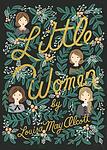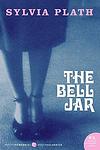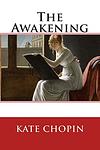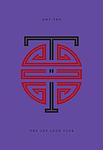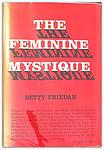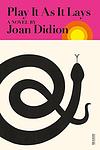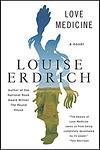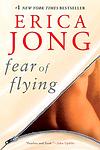The Greatest American "Women's Studies" Books of All Time
Click to learn how this list is calculated.
This list represents a comprehensive and trusted collection of the greatest books. Developed through a specialized algorithm, it brings together 300 'best of' book lists to form a definitive guide to the world's most acclaimed books. For those interested in how these books are chosen, additional details can be found on the rankings page.
Genres
Women's Studies is a category of books that focuses on the experiences, perspectives, and contributions of women in society. It encompasses a wide range of topics, including gender roles, feminism, women's history, sexuality, and reproductive rights. The goal of Women's Studies is to promote a deeper understanding of the social, cultural, and political issues that affect women, and to empower women to challenge and change the status quo. Books in this category often offer critical analysis and insights into the ways in which gender intersects with other forms of oppression, such as race, class, and sexuality.
Countries
Date Range
Reading Statistics
Click the button below to see how many of these books you've read!
Download
If you're interested in downloading this list as a CSV file for use in a spreadsheet application, you can easily do so by clicking the button below. Please note that to ensure a manageable file size and faster download, the CSV will include details for only the first 500 books.
Download-
1. Beloved by Toni Morrison
This novel tells the story of a former African-American slave woman who, after escaping to Ohio, is haunted by the ghost of her deceased daughter. The protagonist is forced to confront her repressed memories and the horrific realities of her past, including the desperate act she committed to protect her children from a life of slavery. The narrative is a poignant exploration of the physical, emotional, and psychological scars inflicted by the institution of slavery, and the struggle for identity and self-acceptance in its aftermath.
-
2. Gone With the Wind by Margaret Mitchell
Set against the backdrop of the American Civil War and Reconstruction era, this novel follows the life of a young Southern belle, who is known for her beauty and charm. Her life takes a turn when she is forced to make drastic changes to survive the war and its aftermath. The story revolves around her struggle to maintain her family's plantation and her complicated love life, especially her unrequited love for a married man, and her tumultuous relationship with a roguish blockade runner.
-
3. The Scarlet Letter by Nathaniel Hawthorne
Set in 17th-century Puritan Boston, this novel tells the story of a woman who conceives a daughter through an affair and struggles to create a new life of repentance and dignity. She is forced to wear a scarlet "A" on her dress as a sign of her adultery while her lover, a revered local minister, remains unnamed and unpunished. Throughout the book, themes of sin, legalism, and guilt are explored.
-
4. Little Women by Louisa May Alcott
This classic novel follows the lives of the four March sisters - Meg, Jo, Beth, and Amy - as they navigate the challenges and joys of adolescence and adulthood in 19th century New England. As they grow, they grapple with issues of poverty, gender roles, love, and personal identity, each in her own unique way. The story is a testament to the power of family, sisterhood, and female resilience in a time of societal constraints.
-
5. The Bell Jar by Sylvia Plath
The novel follows the story of a young woman who wins a guest editorship at a magazine in New York City and, after a series of personal and professional disappointments, suffers a mental breakdown and returns to her family, where she continues to struggle with depression and suicidal thoughts. The protagonist's experiences in psychiatric institutions and her attempts to reclaim her life are depicted with brutal honesty, making it a poignant exploration of mental illness and the societal pressures faced by women in the mid-20th century.
-
6. The Heart Is A Lonely Hunter by Carson McCullers
The novel explores the spiritual isolation of misfits and outcasts in a small town of the U.S. South. Its protagonist is a deaf-mute who becomes the confidant for various troubled souls including a black physician, a bitter labor activist, a lonely young girl, and a struggling café owner. Each pours their heart out to him, but he remains unable to respond, reflecting the deep human need for connection and understanding.
-
7. The House of Mirth by Edith Wharton
Set in the backdrop of New York's high society during the turn of the 20th century, the novel follows the life of Lily Bart, a beautiful but impoverished woman of social standing. As she navigates the pressures and expectations of her social circle, Lily grapples with the need to secure a wealthy husband to maintain her lifestyle. However, her romantic inclinations and her desire for personal freedom come into conflict with societal norms, leading to her tragic downfall.
-
8. The Awakening by Kate Chopin
"The Awakening" is a novel set in the late 19th century New Orleans, which explores the life of a young woman trapped in societal and marital expectations. She embarks on a journey of self-discovery and independence, defying the norms of her time. The protagonist challenges the traditional roles of women as she seeks personal fulfillment, experiences sexual awakening, and struggles with her desires and responsibilities. The book is a critique of the repressive social norms, particularly regarding women and marriage, of the Victorian era.
-
9. The Joy Luck Club by Amy Tan
This novel explores the complex relationships between four Chinese-American mothers and their American-born daughters. The narrative switches between the perspectives of the eight women, revealing their pasts, their struggles with cultural identity, and the misunderstandings that have grown between the generations. The mothers, who all experienced hardship in their native China, want their daughters to have better lives and thus push them to excel in America. The daughters, in turn, struggle to reconcile their American surroundings with their Chinese heritage.
-
10. Nightwood by Djuna Barnes
"Nightwood" is a modernist novel that explores the complex relationships and sexuality of a group of Americans and Europeans living in Paris in the 1920s. The story primarily revolves around the tumultuous love affair between two women, one of whom is a married aristocrat. The narrative, known for its poetic and dense language, delves deep into the characters' psyches, exploring themes of identity, gender, and desire. The novel is also notable for its frank and groundbreaking depiction of homosexuality and transgender issues.
-
11. The Feminine Mystique by Betty Friedan
This groundbreaking book is a sociological examination of the dissatisfaction felt by American housewives in the mid-20th century. The author argues that women are not naturally fulfilled by devoting their lives to homemaking and child-rearing, challenging the widely accepted belief of the era. It explores the idea of the "problem that has no name" - the widespread unhappiness of women in the 1950s and early 1960s. The book is considered one of the catalysts of the second-wave feminist movement.
-
12. Play It As It Lays by Joan Didion
The novel centers around a woman named Maria Wyeth, a former model and actress, who is drifting through life in the 1960s Hollywood scene. As she struggles with a failing marriage, a difficult relationship with her daughter, and a career that's spiraling downwards, she grapples with existential despair. Told in a series of fragmented narratives, the story reveals Maria's mental breakdown, her self-destructive behavior, and her desperate attempts to find meaning in a seemingly meaningless world.
-
13. The Autobiography of Alice B. Toklas by Gertrude Stein
This book is an innovative and unconventional autobiography, penned from the perspective of the author's life partner, providing an intimate view into the lives of the Parisian avant-garde in the early 20th century. It offers a personal account of their life together, filled with anecdotes of their interactions with famous figures such as Picasso, Matisse, and Hemingway. The narrative also delves into the author's own thoughts and experiences, creating a unique blend of biography, autobiography, and personal memoir.
-
14. Love Medicine by Louise Erdrich
"Love Medicine" is a novel that explores the lives of several generations of a Native American family living on a reservation in North Dakota. The narrative is presented through a series of interconnected stories, each told from the perspective of different family members, and spans over 60 years, from 1934 to 1999. The book explores themes of love, family, identity, and the struggle between tradition and modernity. It provides a deep and poignant look into the complexities of Native American life and culture, and the challenges faced by the community.
-
15. Passing by Nella Larsen
"Passing" is a novel about two light-skinned African-American women, Irene Redfield and Clare Kendry, who can 'pass' as white. Set during the Harlem Renaissance, the story explores the intricacies and challenges of racial identity in 1920s America. Clare, who has chosen to live as a white woman, married to a racist who is unaware of her true heritage, risks everything when she reconnects with her childhood friend Irene, causing both women to grapple with their identities and desires, leading to tragic consequences.
-
16. The Woman Warrior: Memoirs of a Girlhood Among Ghosts by Maxine Hong Kingston
This memoir explores the life of a first-generation Chinese-American woman, navigating the complexities of her dual heritage. Through five interconnected stories, the book delves into the author's childhood experiences, her mother's tales of old China, and the struggles of reconciling these two worlds. The memoir is a blend of reality and mythology, illustrating the author's struggle with her identity, the expectations of her traditional Chinese family, and the challenges of growing up in a predominantly white American society.
-
17. Sula by Toni Morrison
The novel is a poignant tale of two African American girls, Nel and Sula, growing up in the racially segregated town of Medallion, Ohio. The narrative explores their friendship, personal struggles, and the societal expectations imposed on them. Sula, the more rebellious of the two, leaves town to live a life of freedom and independence, while Nel chooses to conform to societal norms, marrying and raising a family. When Sula returns, their friendship is tested due to a betrayal, and the town labels Sula as evil. The book delves into themes of friendship, betrayal, individuality, and the societal roles of women.
-
18. Fear of Flying by Erica Jong
The novel follows the journey of a 29-year-old poet who is struggling with her identity and self-worth. She is in an unhappy marriage and fantasizes about a life of sexual and personal freedom. Her fantasies center around the "zipless fuck", a spontaneous and impersonal sexual encounter. She embarks on an affair with a British psychoanalyst in an attempt to realize her fantasies, but ultimately learns that true liberation comes from within.
-
19. The Clan of the Cave Bear by Jean M. Auel
This novel tells the story of a young girl named Ayla who, after an earthquake kills her family, is adopted by a tribe of Neanderthals known as the Clan. Ayla struggles to fit in with the Clan due to her physical differences and advanced cognitive abilities. Despite these challenges, she learns their customs and ways of life, and even becomes the apprentice of the Clan's medicine woman. The story explores themes of survival, acceptance, and the clash between cultures and species.
-
20. Memoirs of a Geisha by Arthur Golden
This novel is a historical fiction that provides a rich exploration of life in Japan before World War II, through the eyes of a young girl sold into the geisha lifestyle. The protagonist is trained in the arts of entertaining wealthy and powerful men, navigating a world of jealousy, love, and social politics. Her journey is one of resilience and survival as she strives to find personal happiness in a society that views her as a commodity.
-
21. Three Lives by Gertrude Stein
"Three Lives" is a series of novellas that explore the lives of three working-class women living in the United States at the turn of the 20th century. Each story provides a detailed psychological portrait of a different woman: a black housekeeper, a worldly-wise servant, and a lower-middle-class German woman. The narrative delves into their personal struggles, their relationships, and their attempts to navigate the societal constraints of their time.
-
22. The Bean Trees by Barbara Kingsolver
The novel follows the journey of a young woman from rural Kentucky who, on her drive west to avoid an unwanted pregnancy, is unexpectedly entrusted with a three-year-old Native American girl. The protagonist settles in Tucson, Arizona, where she builds a non-traditional family with a group of resilient and unconventional women. The narrative explores themes of love, friendship, and the power of the human spirit while tackling issues of social injustice and immigration.
-
23. The Women's Room by Marilyn French
"The Women's Room" is a groundbreaking novel that explores the journey of a suburban housewife from a traditional, oppressive marriage to an awakening of self-discovery and feminism. After her divorce, the protagonist goes back to school, where she encounters a group of independent, intellectually stimulating women who challenge the societal norms of the time. The novel provides a stark portrayal of the struggles faced by women in the 1950s and 1960s, highlighting the need for gender equality and women's rights.
-
24. Valley of the Dolls by Jacqueline Susann
The novel follows the lives of three young women in New York City from 1945 to 1965 as they navigate the ruthless world of show business and the cost of fame. Each woman becomes dependent on "dolls," a slang term for pills, as they deal with the pressures of their careers, personal lives, and societal expectations. The narrative explores themes of ambition, addiction, and the destructive side of fame, providing a gritty, unflinching look at the dark underbelly of the entertainment industry.
-
25. The Optimist's Daughter by Eudora Welty
The story revolves around a woman who returns to her southern hometown to care for her ailing father. After his death, she is confronted by the harsh realities of her past and the complexities of her present. She navigates through the difficult dynamics of her family, her father's young second wife, and the superficial social circle of her community, all while grappling with her own grief. The novel explores themes of memory, loss, and the often complicated relationships within families.
Reading Statistics
Click the button below to see how many of these books you've read!
Download
If you're interested in downloading this list as a CSV file for use in a spreadsheet application, you can easily do so by clicking the button below. Please note that to ensure a manageable file size and faster download, the CSV will include details for only the first 500 books.
Download


